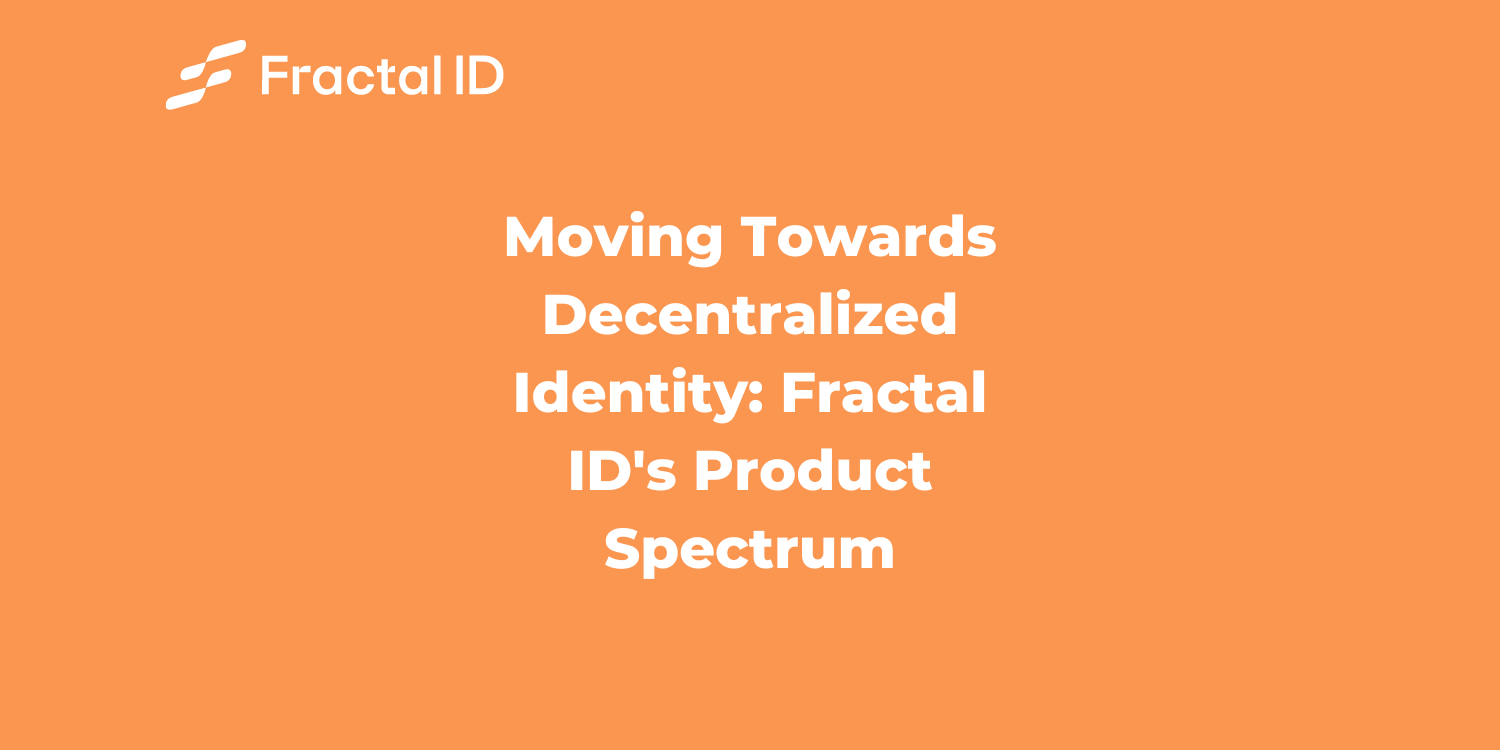Fractal ID’s team is here at DappCon Berlin to stop and say hello to enthusiasts, developers, and users concerned about data privacy.
We kicked off the week with our CTO’s short talk about decentralized identity and how Fractal ID is enabling private data sharing on web3, and we are staying throughout Berlin Blockchain Week to meet up with you!
If you missed us on Monday, this is what we had going on!
Identity for Web3: Privacy-Preserving Transaction Authorization (The Talk)
Decentralized identity is a privacy-preserving commons for identity verification and data sharing. It enables users to issue and leverage verifiable credentials (VCs) that point to certain attributes of their identity (e.g. age, residential country) which they can selectively disclose to onboard to certain platforms or access different services and DApps.
Embracing the mess
Decentralized identity standards have been around since 2005. However, to quote our CTO, Julio Santos, we need to start building, tune out the identity maximalists and stop waiting for perfect solutions. This is because identity verification is messy, regulatory compliance is messy, supporting users is messy, and so nobody wants to take responsibility. But Fractal ID does. Fractal ID embraces the mess.
Starting from regular KYC/AML, we found utility in the crypto space where scams and frauds present an obstacle to mass adoption and prevent many from jumping to great opportunities.
With the ubiquitous flow of oAuth that all users know. Fractal ID acts as a federated verified identity provider: think “log in with X”, but with verified identities.
However, identity is much more than KYC/AML, it is about fair airdrops, sybil-resistant voting, and authentic NFTs. And for a diverse landscape of use cases, Fractal ID provides a pragmatic continuum of products that enables clients to choose from depending on their needs, ethos and technical stack.
Moving towards the right end of the spectrum
Fractal ID’s products sit on a decentralization spectrum. The further to the right, the more control users have over their own data, and the less intermediation by Fractal ID. And we want to push people to the right end of the spectrum, until we get them to use a data wallet.
1. The Credential API
Leveraging Fractal ID’s credential API enables clients to tap into our existing user base with a quick and easy solution to access the provably verifiable KYC status of the identity behind a wallet address and validate it on-chain.
Looking at Figure 1, you can see that the credential API has a one click wallet flow that all crypto users know, which is:
- Before a user interacts with a smart contract, they are asked to sign an authorization with their wallet.
- The authorization is sent to Fractal ID’s API to get a KYC proof.
- This proof is then included in the users’ transactions to inform the client’s smart contract decisions.
2. The DID Registry
The open DID registry is a privacy-preserving identity verification commons that allows for on-chain identity verification.
The open DID registry provides users with a no-touch workflow that enables them to smoothly onboard to different platforms or DApps that need identity verification.
For users with Fractal ID, all they need to do to onboard to a platform is plug in their wallets, and the platform/DApp will toggle through the registry, look up their credentials, and onboard them immediately.
And, since the registry is open, non-Fractal ID users can still leverage the privacy-preserving functionality of the registry by simply uploading their identity documents (e.g. passport, residency proof), and Fractal ID will verify these documents, and issue verifiable credentials that the users can leverage to onboard to different DApps.
What is unique about the registry is that once a user is verified for one DApp on a certain ecosystem (e.g. Aurora, Avalanche), they will be able to immediately jump to opportunities on other DApps in the ecosystem.
Explore our case studies to see the details about deploying Fractal ID’s DID registry:
- Fractal ID x Aurora: The Aurora Ecosystem Tapping Into The Open DID Registry
- Fractal ID x Avalanche: Bringing Decentralized Identity to the Avalanche Ecosystem
3. Fractal ID Wallet
At the far right of the spectrum comes the fully decentralized solution, Fractal ID’s Wallet that carries the users’ decentralized self-sovereign identity that brings back complete control to the users over their data.
Fractal ID’s users that use the data wallet can share verifiable KYC status and/or data directly from their Fractal ID Wallet. They can selectively disclose these proofs to the smart contract to inform the smart contract’s decision without revealing unnecessary information about their identity.
Q: What are the use cases of Fractal ID Wallet and Decentralized Identity?
A: Decentralized identity is about making use of human uniqueness. Explore decentralized identity use cases in our in-depth research:
- Decentralized Identity Use Cases: Self-Sovereign Identities for DAOs
- Decentralized Identity Use Cases: DIDs For a Safe & Private Metaverse
- Decentralized Identity Use Cases: DIDs For Sybil-Resistant Quadratic Voting
Finally, to quote Julio again,
“Dodgy centralized services can sometimes appear more reliable, more convenient, more polished. And we’re all so focused on our core products that identity is often an afterthought. I get that. But we all have a responsibility to push for decentralization, so join us. Stop waiting for perfection, embrace the mess that is identity, and help us normalize decentralized identity and data sovereignty.”
